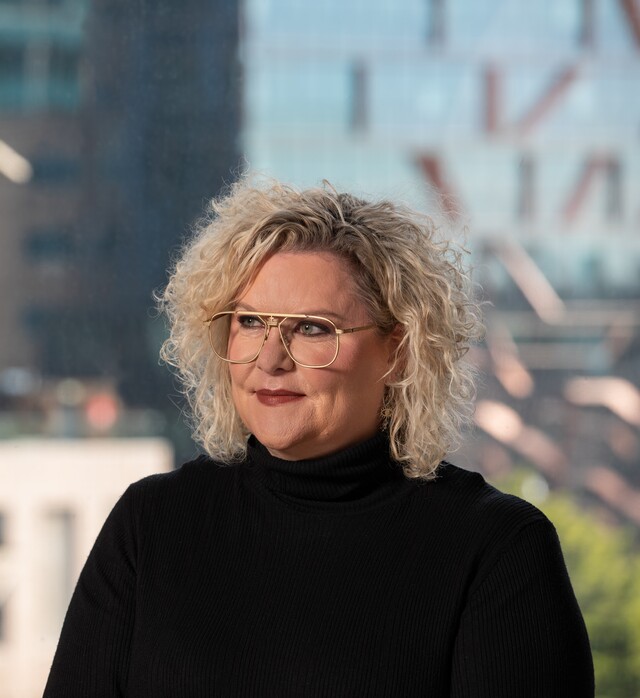Protests disrupting democratic spaces and processes are becoming increasingly common – a troubling consequence of disinformation fuelling division, distrust, and unrest.
It’s a challenging environment for democracies around the world. The rise of artificial intelligence (AI) has made disinformation easier and cheaper to create while changes to social media platforms also make it easier than ever to disseminate.
As a result, the World Economic Forum Global Risk Report 2025 listed mis- and disinformation as the top global risk of the immediate term.
The United States Capitol attack that shocked the world in January 2021 was an extreme example of where disinformation contributed to violent civil disobedience.
Here in Victoria, while we haven’t experienced extremes like this, we are certainly not immune to the risk, particularly at a local government level.
Earlier this year, the City of Casey was forced to adjourn its first meeting of the new council term, when threatening behaviour meant councillors and staff needed to be escorted out of the building by police.
This is consistent with a trend over recent years that has seen a significant increase in the number of council meetings that have been disrupted by groups opposing liberal democracy.
In 2023 alone, 15 councils reported disruptions to their proceedings from just one such group, with one particularly disruptive incident in the City of Monash seeing angry protestors besiege council chambers and police called.
Local councils strive to create safe, welcoming and inclusive places for communities to participate actively in local democracy but when local institutions become unsafe, we see more and more people disengage.
It’s not just the most overt and extreme forms of disruption we need to be concerned about. It’s also the quiet withdrawing of voices that can have an equally devastating impact.
Our democracy can only thrive when citizens actively participate and advocate for their beliefs and values, taking the time to get involved in shaping the future of their community.
Listening to the voices of residents is vital to informing the work of councils but when behaviour boils over into unchecked anger it places elected officials and council staff at risk and discourages participation.
Democracy – and diversity in our democratic processes – suffers more broadly when some groups within the community feel excluded or are excluded by others from participating, through fear, lack of confidence or simply poor understanding of civic processes.
We are already seeing a worrying decline in our young people’s understanding of civics as demonstrated in the latest Australian Curriculum and Assessment Reporting Authority (ACARA) results which showed the worst ever civics result amongst students with 72 per cent not understanding the basics of democracy. This places them at greater risk of disengagement and makes them more susceptible to disinformation.
The most recent council elections held in 2024 failed to reach gender equality with the percentage of women councillors across Victoria remaining unchanged from the previous elections at 43 per cent, despite a push to increase the number of women councillors. Anecdotally, we know some candidates have been discouraged from running, fearing online trolling and threats to personal safety.
Last year the Municipal Association of Victoria (MAV) released an ‘Active Citizen’s Guide’ to encourage everyone to constructively engage with local councils in the lead up to the local council elections.
The MAV has also been a leading supporter and contributor to the Disinformation in the City Response Playbook. The Playbook, produced by the Melbourne Centre for Cities at the University of Melbourne places councils at the heart of the solution to the disinformation crisis.
It suggests: “Responding to disinformation is an opportunity for cities to ‘fall forward’ into a new reality. For cities and local governments, this invites reflection and a new imagining of the necessary structures to promote trust, build communities, communicate and listen, and collaborate in multi-level, multi-city, and multisector disinformation response.”
In the lead up to the Federal Election, MAV and all 79 Victorian councils are advocating for support from the federal government to design and pilot practical programs that promote active local democracy and combat disinformation at the community and neighbourhood level.
These pilot programs will feed into a scalable toolkit that takes the ideas outlined in the Active Citizen’s Guide and the Disinformation in the City Playbook and demonstrates how to put them to work creating local solutions to local issues across Victorian communities.
Despite the increase in disruption to local democracy, Councils as the closest tier of government to the people, remain the most trusted form of government in Australia.
This means it is incumbent on local government to play an active role in combatting disinformation and protecting the foundations of our democracy.
In also means there is much to be gained nationally by investing in local governments to build the new skills and capabilities they need to engage with our communities in new ways that ensure people feel heard and most importantly safe in expressing themselves.

















